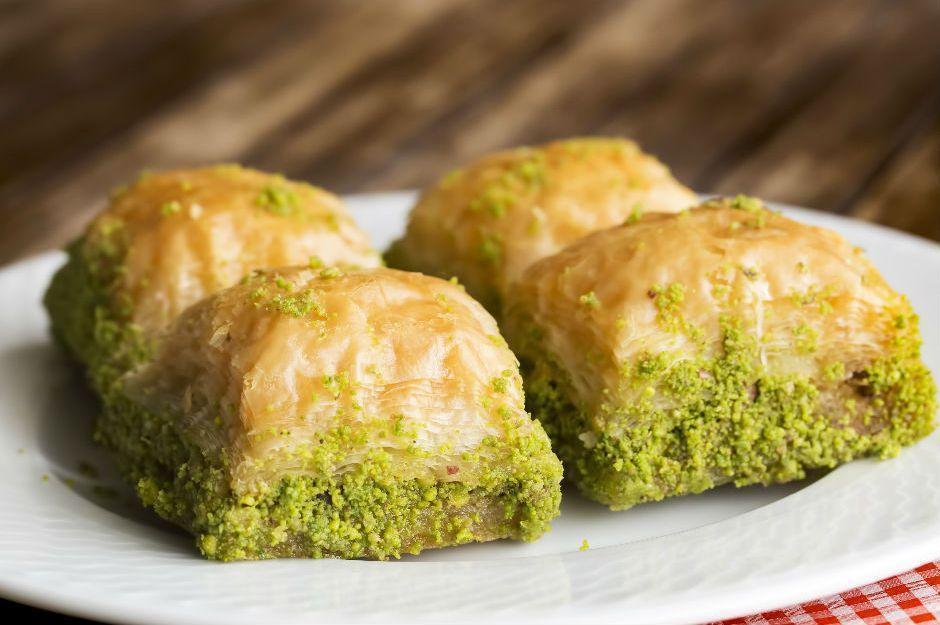
The traditional Turkish dessert baklava will not be produced with pistachio during Ramadan this year due to high pistachio prices, association heads stated on May 12.
“The price of pistachio, which can be bought from farmers for 60 Turkish Liras per kilogram, is being sold for 120 liras by wholesalers ahead of Ramadan. The price of pistachio should be around 70 liras. Such a prohibitive price is neither moral nor lawful, so we have decided not to sell pistachio baklava during Ramadan in order to counter wholesalers and black market traders. Instead of pistachios we will use walnuts, hazelnuts and almonds in baklava during Ramadan,” Association of Baklava and Dessert Producers (BAKTAD) head Mehmet Yıldırım said.
Baklava producers recently decided to boycott a number of wholesalers, some of whom raised the price of pistachio to 201 liras per kilogram.
“Neither manufacturers nor baklava producers nor consumers benefit from this situation. If a solution is not found, many baklava producers will go bankrupt and baklava, which is one of our national values, will become history. Many companies operating in our sector have announced that they will support this decision. This week we will visit Food, Agriculture and Livestock Minister Ahmet Eşref Fakıbaba to ask for his support,” Yıldırım said.
“Due to the absence of supervisory and deterministic mechanisms in the sector, black market stockists exploit this gap and damage the market. In this situation of inflated prices, those most damaged are peanut producers, baklava producers and other people who sell pistachios as a final product,” he added.
Yıldırım said new tax regulations should be implemented to clear the way for imports to prevent uncontrolled prices in the sector.
“In order to ensure rational pricing, the stock market and all related institutions need to take greater initiative. We are seeking assistance from our government to identify and punish those who are engaged in unfair competition, unregistered activities and black market activity,” he added.
Yıldırım claimed that the unfair profit of black marketers since the start of 2017 is 4.3 million liras.
“Today we produce 100,100 tons of baklava per day. A total of 50,000 manufacturing workers and sellers are involved in the sector. Exports amounted to 20 million liras in 2017. Such a big sector should not be left in the hands of a few black market figures,” he said.
Baklava, whose origin is disputed between Turkey and Greece, is prepared with fresh pistachios or walnuts and a glistening honey glaze on top of the puffed pastry.
It is a traditional favorite during the holy month of Ramadan, which is due to start on May 15 and will continue until June 14.